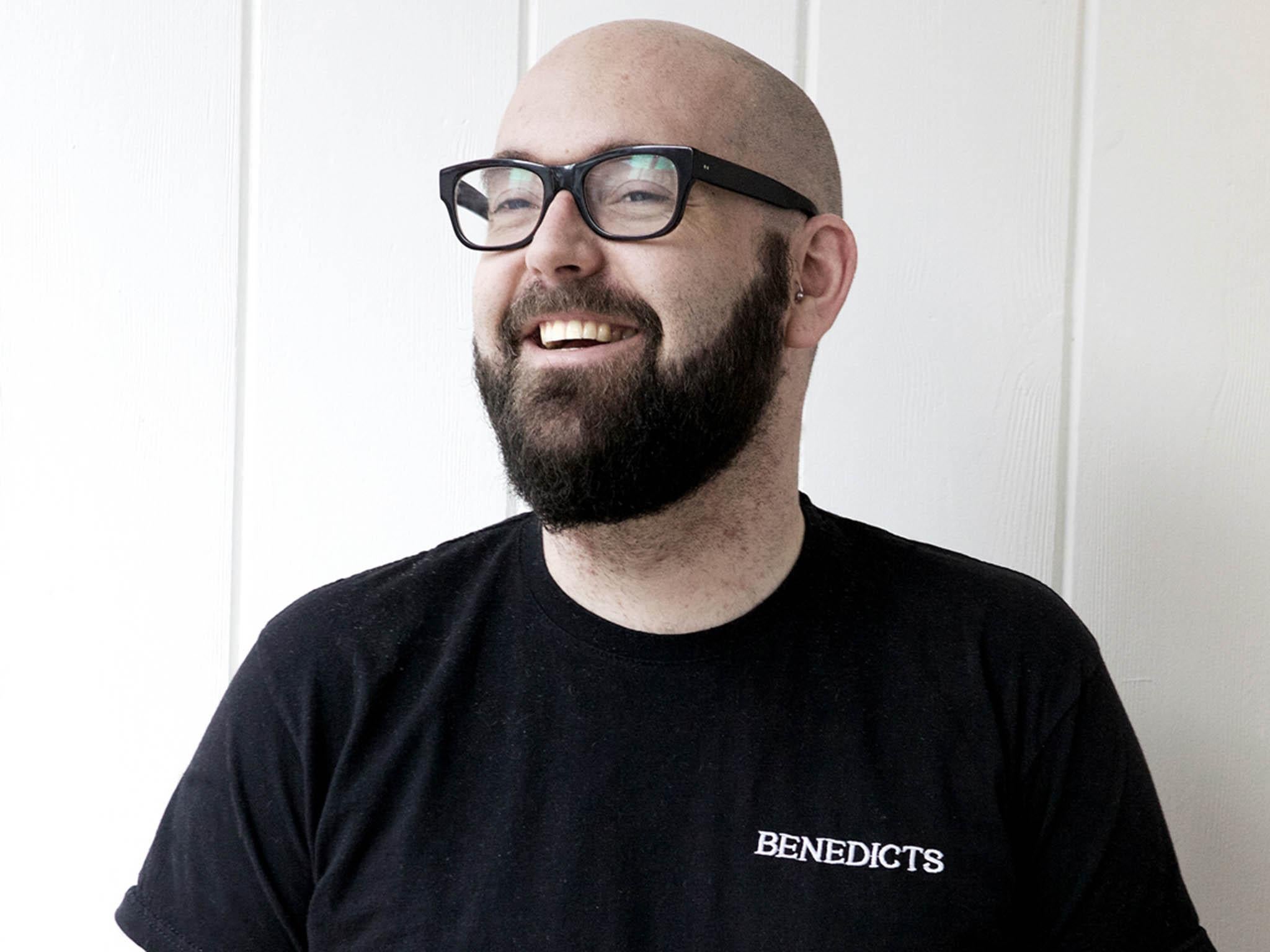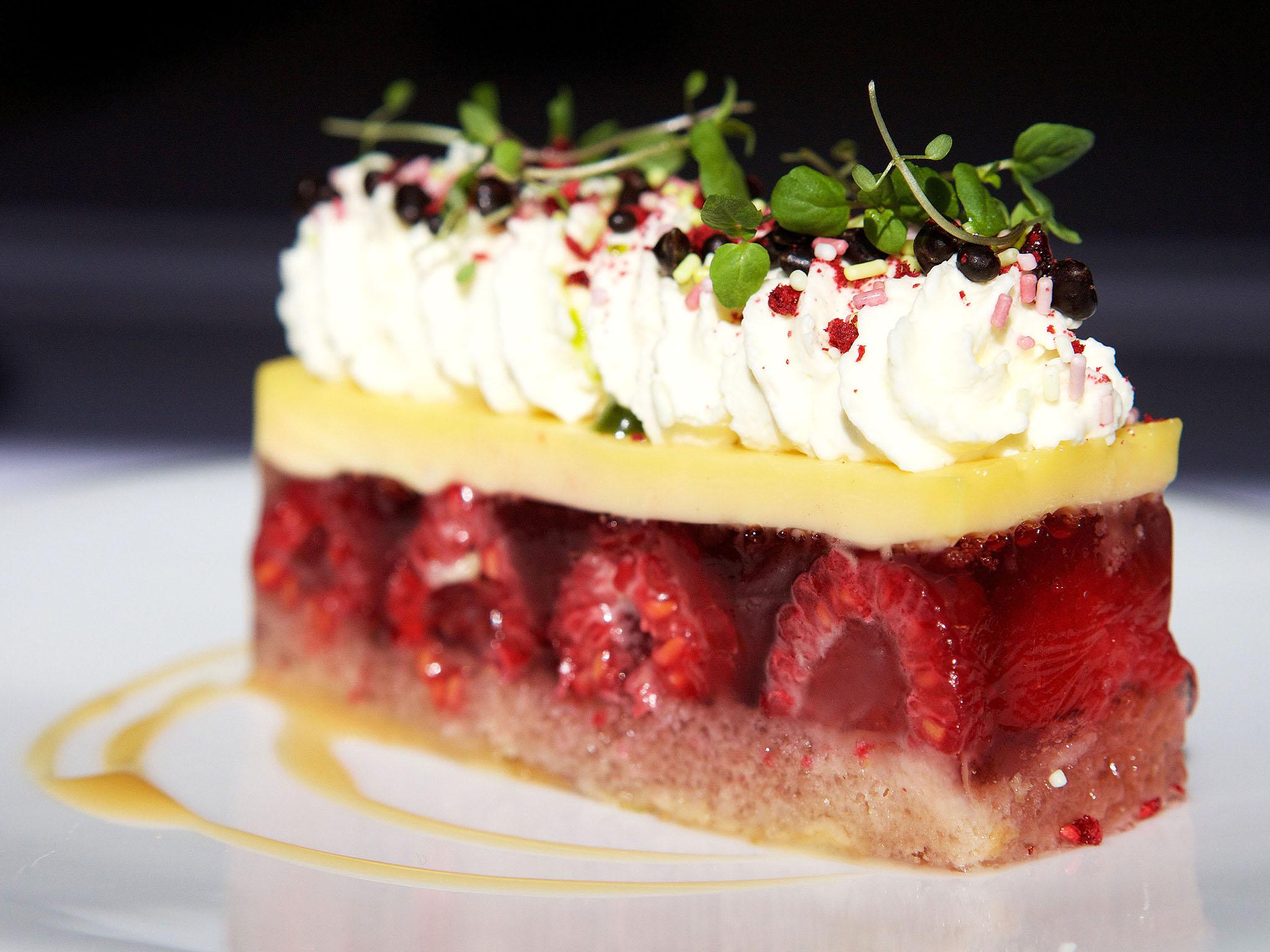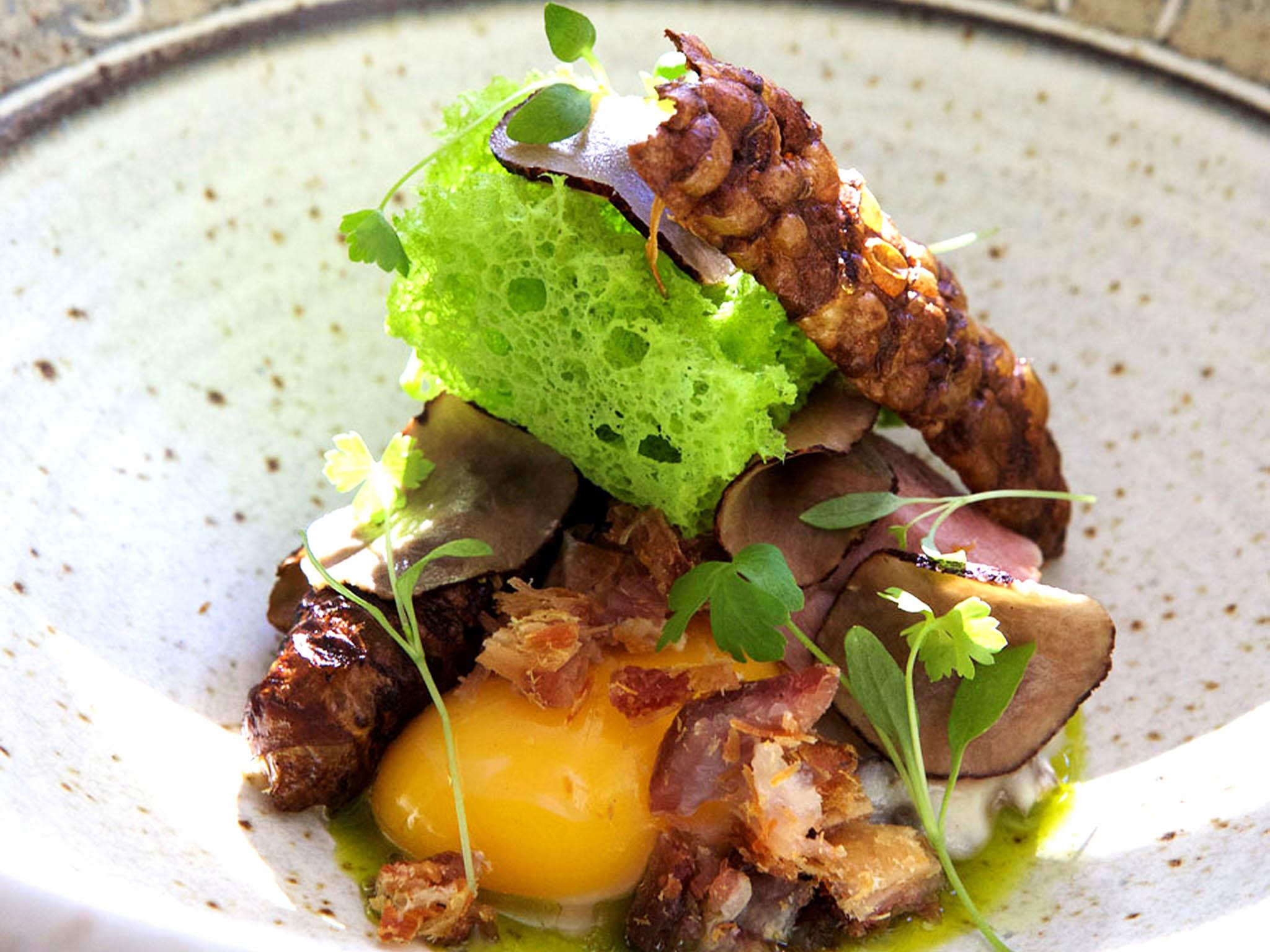Richard Bainbridge on the Roux brothers, his nanny's trifle and the importance of relationships
Family cooking is more than just an inspiration for the Benedicts chef – his nanny’s trifle is a signature dish on the menu. ‘Without her, I wouldn’t be a chef,’ he tells Hope Howard

Your support helps us to tell the story
From reproductive rights to climate change to Big Tech, The Independent is on the ground when the story is developing. Whether it's investigating the financials of Elon Musk's pro-Trump PAC or producing our latest documentary, 'The A Word', which shines a light on the American women fighting for reproductive rights, we know how important it is to parse out the facts from the messaging.
At such a critical moment in US history, we need reporters on the ground. Your donation allows us to keep sending journalists to speak to both sides of the story.
The Independent is trusted by Americans across the entire political spectrum. And unlike many other quality news outlets, we choose not to lock Americans out of our reporting and analysis with paywalls. We believe quality journalism should be available to everyone, paid for by those who can afford it.
Your support makes all the difference.You’ve previously said that if it wasn’t for your nanny, you wouldn’t be a chef. Why is that?
She was the one who inspired me to cook from her homemade apple tarts, jam tarts, mince pies, roast lamb and trifle, which were all synonymous in our family.
The way that she gave hospitality to friends and family who came around her house was a true inspiration and this has stayed with me.
Owning my own restaurant, I want everyone who walks through the door of Benedicts to have the same experience as people who stepped through the door of my nanny’s house.
Since you were 13, you knew you wanted to be a chef. How do you think you found your passion at such a young age?
When I was 13 and stepped through the doors of the kitchen of my local pub to wash up for the first time I instantly knew this was the career for me.
At school I was dyslexic and struggled with numbers and reading but when I walked into a kitchen hearing the clatter of the pans and the excitement, passion and fun of what was going on got me hooked.
I loved the fact you have to push yourself physically and mentally to keep on top of the night’s service, all of this just rang true to me.
Watching someone create something and being able to replicate it with no books or reading (at least in the early days) made me realise this was something I could do.
So, from 13 I remember telling myself that I would give myself 10 years and if I hadn’t got very far and I wasn’t doing the best I could do I would start something else and become a plumber like my mum wanted me to be.
How do you balance the busy life of being a chef and spending time with your family?
Being a chef and finding a balance with your home life is hard at the best of times.
But when you add on running a business, owning a restaurant with 18 members of staff and having an amazing family that you want to spend all you time with it’s even harder.
Even to this day three years into owning Benedicts I’m still trying to find a path and a happy balance between the two.
After working at the Waterside Inn, how do you think this has shaped your approach to cooking?
For me the Waterside Inn and working for the Roux brothers was like going to university. It taught me about French classical cooking and working with the finest ingredients the world has to offer.

It taught me about camaraderie, working hard, discipline and the fundamental foundations of cooking as we know it today.
Being able to learn my trade in that traditional environment gave me the foundations to move forwards and take that classic idea but add modern influences, touches and techniques as the world of cooking moves forwards.
Working at the Waterside Inn was the biggest and best part of my career but also the hardest part, it has put me in good stead and I wouldn’t be where I am today if it wasn’t for my time at the Waterside Inn.
What did it feel like to judge on the Great British Menu after you competed in it and cooked two dishes at the final banquette?
Being asked to be a judge on Great British Menu was huge for me. In a way, it was shutting the book on my GBM history.
From being asked to do it for the first time at 25-26 years old and going up against Daniel Clifford and Will Holland with Glynn Purnell as my judge, being sent home on the Thursday was devastating.
I remember vowing to myself that one day I would stand behind that table like Glynn was. Now 10 years on, I was very lucky that GBM has supported me time and time again, I was able to go back on the programme and finally made it to the banquet with two winning dishes!
Then they asked me to be a judge and it was such a different experience, having been the competitor putting your passion, dedication, heart and soul into your dishes made it a really difficult task to judge because I remember so well being in their shoes.
But we all know when it comes to Great British Menu it’s all about the brief!
What’s the most important thing you have learned since opening your own restaurant?
The most important thing I’ve learnt about opening a restaurant is relationships.
My relationship with my beautiful wife Katja, which has its highs and lows running a family and a business together, but I know we’re as solid as a rock and I admire her for everything she does.
When it comes to our staff, the relationship and bond you build with them is what makes your restaurant as good as it can be. If you don’t build those relationships and you don’t respect each other equally, your restaurant won’t make it to where you want it to be.
Another really important relationship is the one you have with your producers and suppliers, if you don’t have a great relationship with the people who grow and distribute your products they won’t look after you and work to get you the best they can offer and if you need that extra delivery at four o’ clock in the afternoon they won’t come out and deliver them to you.
Your kitchen was recently awarded three prestigious AA Rosettes. What does this mean to you?
When we opened the restaurant I didn’t really have any ambitions for accolades especially in the first year I just wanted to be able to pay my staff and stay open!
So, to be awarded two Rosettes from AA within the first week of opening and then in just over two years for AA to give us the prestigious three Rosettes, which I think puts you in a different bracket, is great for us.
One thing I am really proud of is that of the 18 members of staff who work at Benedicts only four of us had ever worked in a three-Rosette restaurant before so for the team to make that achievement was incredible.
Three Rosettes has given us a springboard for our future ambitions so for us it’s a really great honour and I am very proud.
You’ve said that chefs can become consumed with accolades. How do you keep yourself grounded?
For me, my restaurant is about our customers coming in to Benedicts and having a great time. Going back to my nanny’s hospitality I genuinely want people to come in and enjoy themselves.
I believe that if your customers are happy then the accolades will follow. There is no point in even having the accolades and being driven by Michelin, The Good Food Guide, etc if it’s not what your customers are looking for.
Your restaurant won’t become busy because you aren’t giving your customers what they want, there’s no point in having a Michelin star with an empty restaurant.
Therefore, at Benedicts we are very focused on our customers having the best time possible and listening to their thoughts. I truly believe that’s how accolades are achieved.
What do most people not know about the food scene in the East of England?
I think a lot of people outside East Anglia don’t realise we have such a huge food scene which is on the cusp of exploding on a national scale.
We have some of the best produce from pork to lobsters, Cromer crab, samphire, the amazing vegetables coming out of Elveden Estate, which I heard the other day grows 7 per cent of the nation’s onions.
People think of Norfolk as being so far away from anything that we’re a bit behind the times but we are very much a force to be reckoned with when it comes to food so watch this space!

Where is your favourite restaurant to eat at in the East of England?
As with most people I have my favourite selection of restaurants that I go to. In Norwich I love having traditional fish and chips at Grosvenor Fish Bar just up the road from Benedicts.
There is another a great restaurant on the outskirts of the city centre I love to go to called Woolf and Social which serves great, modern tapas which is really inventive.
You’ve also got the East Anglian crowning glory of Morston Hall, Galton Blackiston’s restaurant which is amazing. Number 10 in Sheringham is great for a very intimate dining experience for you and your partner, cooking wonderful seasonal food.
Going into Suffolk you’ve got fantastic restaurants such as the Unruly Pig who are doing very exciting things!
You’ve also got Grain which is a restaurant in Colchester who are using locally sourced ingredients and doing great tapas-style food, owned and run by two friends, which I find really inspirational.
If you count Cambridge into East Anglia obviously we’re very lucky to have Daniel Clifford’s two Michelin-starred Midsummer House, which is really waving the flag for Cambridgeshire.
If you could only serve one dish at Benedicts, what would it be?
It would have to be nanny Bush’s trifle! Without my nanny’s trifle Benedicts wouldn’t be here so it would definitely be this dish.
Is there one utensil you can’t live without?
From a chef’s point of view it’s so difficult to pick just one thing I couldn’t live without in a kitchen, however I would have to say a knife.
In modern kitchens we have so many different pieces of equipment which enable us to cook in multiple different ways – BBQ, sous vide, Thermomix and so many more!
But if you go back to the true basics of what we do to me one of the greatest tools we have is the knife. No chef is complete without their own set of knives which are personal to them.
I remember going into kitchens and unrolling my knife roll and getting my first ever knife and the joy I felt holding it in my hand.
You make sure your kitchen is always using seasonal ingredients. Why is this so important to you?
As I said before relationships are so important especially those with your suppliers.
The suppliers are what make you seasonal because they grow with the seasons so for us as a restaurant it’s great to use what’s locally available.
I think it shows a great level of skill using different ingredients and it is such a natural way to cook.
As we would have hundreds of years ago, using what’s readily available on your doorstep makes it really exciting to use different ingredients.
Join our commenting forum
Join thought-provoking conversations, follow other Independent readers and see their replies
Comments